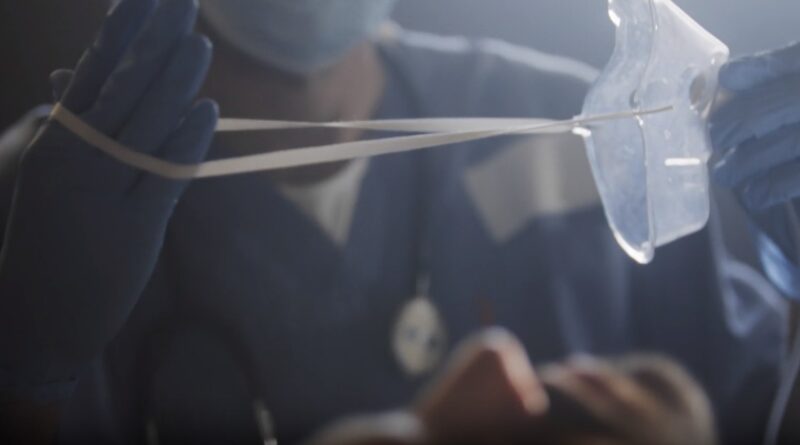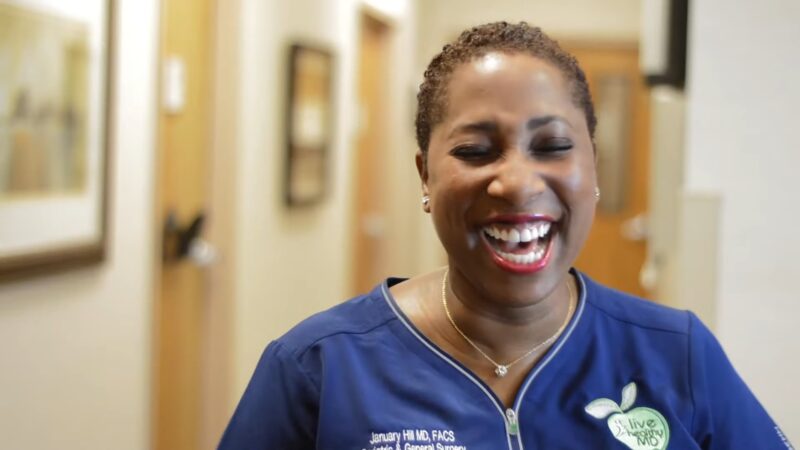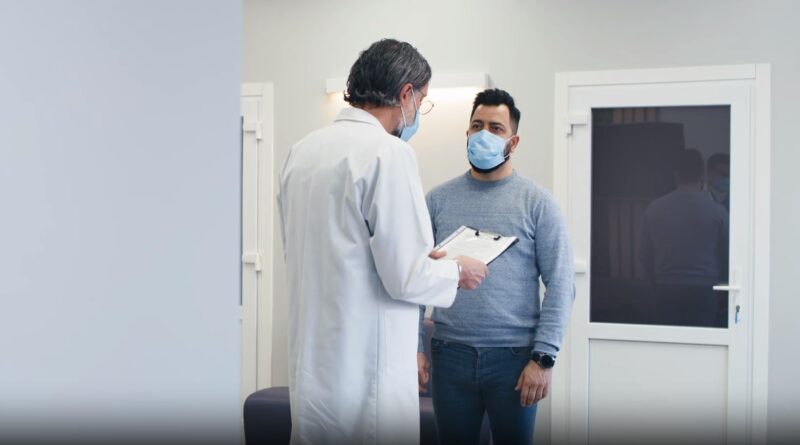Over the years, I’ve encountered countless patients who, after undergoing hernia surgery, have expressed concerns about the appearance of their stomach. It’s a common query, and today, I’m here to shed light on this topic.
Drawing from my extensive experience and the latest medical research, I aim to provide you with a comprehensive understanding of why the stomach might appear bigger post-hernia surgery and what you can do about it.
Surgery Process
Hernia surgeries aim to push the protruding organ or tissue back to its original place and strengthen the weak spot to prevent recurrence. This is usually done by sewing the hole shut and sometimes using a mesh to provide additional support.
The surgery can be performed using open or laparoscopic techniques.
Post-Surgical Swelling: A Common Phenomenon
After any surgery, it’s common for the body to react by swelling. This is a natural response to trauma and is the body’s way of healing.
The Role of Inflammation
Inflammation is the body’s natural response to injury. After hernia surgery, the tissues around the surgical site become inflamed as the body starts the healing process. This inflammation can cause the stomach or the surgical area to appear larger or more swollen than usual.
Over time, as the inflammation subsides, the swelling will decrease.
Fluid Accumulation
Another reason for post-surgical swelling is the accumulation of fluid, known as seroma. This clear, yellowish fluid can gather at the surgical site, causing a temporary bulge.
While it’s usually harmless and gets reabsorbed by the body, in some cases, it might need to be drained by a medical professional.
The Role of Surgical Mesh

In many hernia repairs, a surgical mesh is used to provide additional support to the weakened area. This mesh can play a role in the post-surgical appearance of the stomach.
Mesh-Induced Swelling
The introduction of a foreign material, like the surgical mesh, can cause the body to react. This reaction can lead to swelling around the mesh area. It’s the body’s way of adjusting to the new material.
Over time, as the body gets used to the mesh, the swelling will typically subside.
Mesh Complications
While surgical meshes have been a boon in hernia repairs, they’re not without complications. In some cases, the mesh can shrink, migrate, or even erode into nearby tissues. This can cause the stomach to appear bigger or distorted.
If you suspect a mesh complication, it’s crucial to consult with your surgeon.
Scar Tissue Formation

The body’s healing process after surgery often involves the formation of scar tissue. This is a natural and essential part of recovery, but it can influence the appearance of the surgical area.
The Nature of Scar Tissue
Scar tissue is a dense, fibrous material that the body produces to close and heal a wound. While it serves a protective function, scar tissue is less elastic than the surrounding skin and can sometimes contract or harden over time, leading to a puckered or raised appearance.
Adhesions and Their Impact
Adhesions are bands of scar tissue that can form between abdominal tissues and organs. They can pull structures out of place or cause them to stick together, leading to a change in the contour of the stomach.
In some cases, adhesions can also cause discomfort or pain, especially during movement.
Post-Surgical Weight Gain
It’s not uncommon for patients to experience some weight gain after surgery. This can be due to a variety of factors, including reduced activity levels and changes in diet.
Reduced Activity Post-Surgery
After the surgery, patients are often advised to limit their physical activity to allow the body to heal. This reduction in activity can lead to muscle atrophy and potential weight gain, especially if calorie intake remains unchanged.
Dietary Changes and Medications
Post-surgery, some patients might experience changes in appetite or dietary habits. Additionally, certain medications prescribed for pain or inflammation can lead to weight gain or water retention, further contributing to a larger stomach appearance.

Tips to Manage and Reduce Swelling
Understanding the reasons behind a bigger stomach post-surgery is essential, but it’s equally crucial to know how to manage and potentially reduce the swelling.
Gentle Movement and Exercise
While it’s essential to rest after surgery, introducing gentle movements and exercises can help reduce swelling and improve circulation. Always consult with your doctor before starting any exercise regimen post-surgery.
Compression Garments
Wearing a compression garment can help reduce swelling by applying consistent pressure to the surgical area. It can also provide support to the healing tissues, reducing the risk of complications.
Ensure you choose a garment specifically designed for post-hernia surgery and wear it as advised by your medical professional.
The Healing Timeline: Patience is Key

Every individual heals at a different rate, and understanding the typical healing timeline can set realistic expectations.
Short-term vs. Long-term Swelling
While some swelling is expected in the days and weeks following surgery, long-term swelling might indicate other issues. It’s essential to differentiate between the two and consult with your surgeon if the swelling persists beyond the expected timeframe.
Factors Influencing Healing
Several factors can influence the speed of recovery, including age, overall health, the complexity of the surgery, and adherence to post-operative care guidelines. Being aware of these factors can help manage expectations and ensure a smoother recovery journey.
When to Seek Medical Advice
While some post-surgical changes are expected, it’s essential to know when to seek medical advice to ensure there aren’t any complications.
Signs of Complications
Persistent pain, excessive swelling, changes in skin color around the surgical site, or the discharge of unusual fluids can be signs of complications. It’s crucial to be vigilant and consult with your healthcare provider if you notice any of these symptoms.
Regular Follow-ups

Regular follow-ups with your surgeon are essential to monitor the healing process and address any concerns promptly. These appointments provide an opportunity for the surgeon to assess the surgical site and ensure everything is on track.
FAQs
Can I use over-the-counter medications to reduce post-surgical swelling?
While some over-the-counter medications can help reduce inflammation and swelling, it’s essential to consult with your surgeon before taking any medication. Some drugs can interfere with the healing process or interact with other medications you might be on.
How long should I wear a compression garment?
The duration of wearing a compression garment varies depending on the type of surgery and the surgeon’s recommendations. Typically, it might be advised for several weeks post-surgery.
Always follow your surgeon’s guidelines to ensure optimal healing.
Are there any natural remedies to reduce swelling?
Some patients find relief using natural remedies like arnica montana or bromelain to reduce swelling. However, it’s essential to discuss with your surgeon before trying any natural remedies to ensure they won’t interfere with the healing process.
Can massage therapy help with post-surgical swelling and scar tissue?
Massage therapy can potentially help improve circulation, reduce swelling, and break down scar tissue. However, it’s crucial to wait until the surgical site is fully healed and to consult with your surgeon before undergoing any massage therapy.
Is it normal to feel a hard lump at the surgical site?
It’s not uncommon to feel a firm lump at the surgical site, especially in the early stages of healing. This can be due to scar tissue formation or the body’s response to the surgical mesh.
However, if the lump persists or grows, it’s essential to consult with your surgeon to rule out any complications.
Summary
Having walked with many patients on their post-operative journey, I understand the concerns, anxieties, and questions that arise after hernia surgery. It’s essential to remember that every individual’s healing process is unique, and while some changes are expected, being informed is your best tool.
I hope this article has provided clarity on the topic and assuaged some of your concerns. Always prioritize open communication with your healthcare provider and remember that your well-being, both physical and mental, is paramount.

